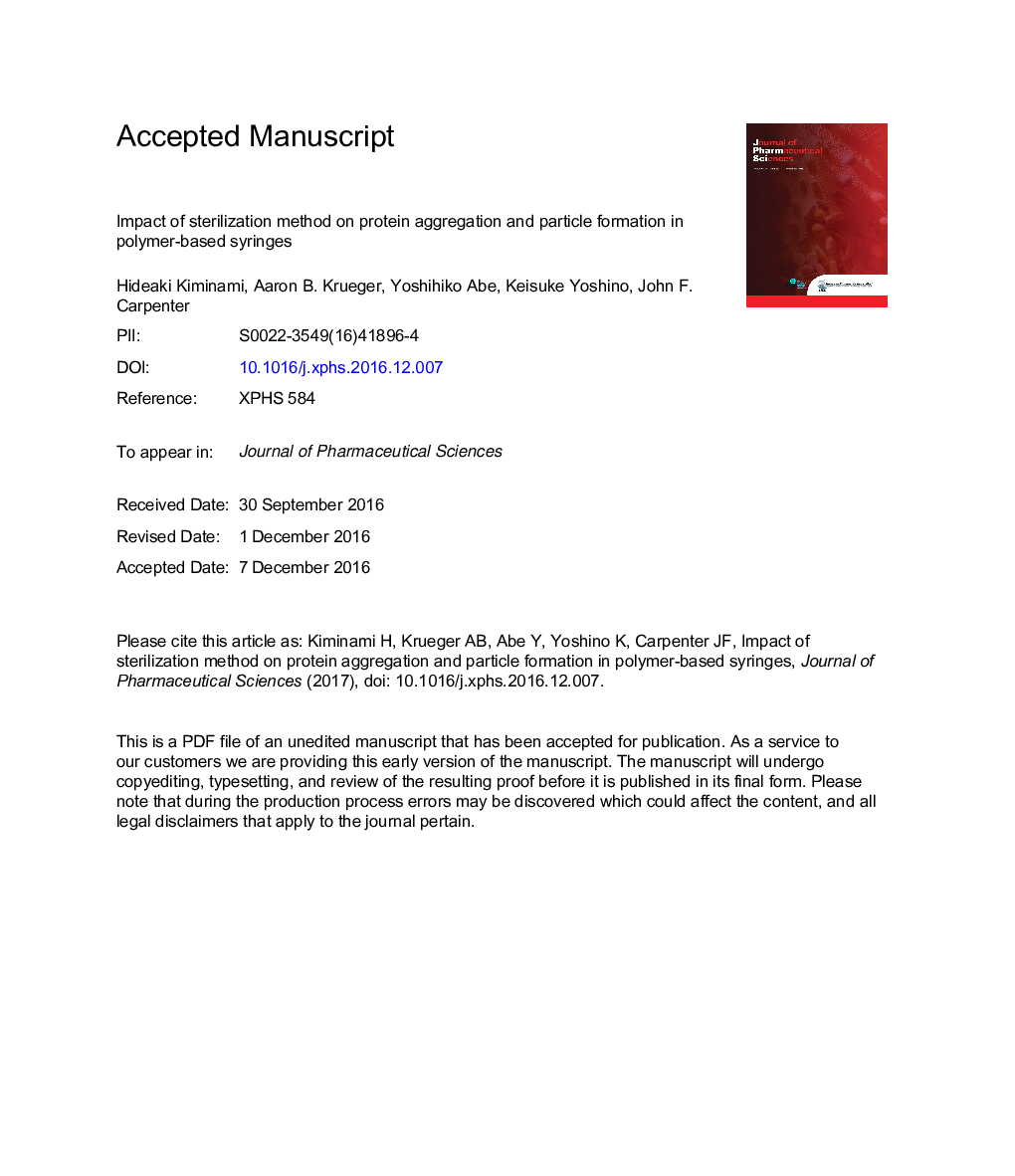| Article ID | Journal | Published Year | Pages | File Type |
|---|---|---|---|---|
| 8514298 | Journal of Pharmaceutical Sciences | 2017 | 22 Pages |
Abstract
The effects of sterilization methods on the storage stability of erythropoietin (EPO) in polymer-based syringes were assessed by quantifying protein oxidation, aggregation, and particle formation. Micro-particle counting and size exclusion chromatography coupled with a multi-angle light scattering detector demonstrated much lower levels of protein particles and aggregates for EPO stored for 12 weeks in steam-sterilized than in radiation (Rad)-sterilized syringes. Intermediate levels of damage were observed for EPO stored in ethylene oxide-sterilized syringes. HPLC analysis documented that the Rad-sterilized syringes caused increased oxidation of the protein during storage. In contrast, in the steam- and ethylene oxide-sterilized syringes EPO oxidation did not change. Analysis with electron spin resonance revealed that only Rad-sterilized syringes formed radicals in the syringe body, which persisted over the 12-week storage period. These results demonstrated that Rad-sterilization generated radicals in the syringes which in turn caused increased EPO oxidation, particle formation, and protein aggregation. Therefore, steam sterilization was shown to be a preferable sterilization method for the polymer-based syringe system when using biopharmaceutical drugs highly sensitive to oxidation, and particle formation and aggregation.
Keywords
Related Topics
Health Sciences
Pharmacology, Toxicology and Pharmaceutical Science
Drug Discovery
Authors
Hideaki Kiminami, Aaron B. Krueger, Yoshihiko Abe, Keisuke Yoshino, John F. Carpenter,
